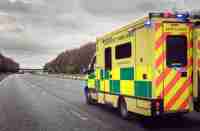Local Fianna Fáil TD, Dr Martin Daly, has raised concerns in the Dáil over the exclusion of a long-promised rehabilitation unit at Roscommon University Hospital from the Health Service Executive (HSE) Capital Plan 2024, despite years of planning and commitment.
Deputy Daly highlighted the project’s omission during a parliamentary debate, stressing that a €7.8m investment for 20 dedicated rehabilitation beds was first pledged in 2015. While the project advanced through design phases in recent years, it was notably absent from the latest capital plan.
“The people of Roscommon-Galway deserve a transparent explanation as to why this critical infrastructure appears to have been mothballed,” Deputy Daly said. He noted that the west of Ireland faces a significant shortfall in neurorehabilitation beds, with availability varying widely across the country –from 6.4 beds per 100,000 people in some regions to 45 per 100,000 in others.
Daly argued that patients in the west are forced to seek specialist rehabilitation in Dublin, leading to delayed access, unsuitable care settings, and increased long-term dependency. Citing economic concerns, he said specialist rehabilitation has been proven to reduce costs over time, stating that early intervention recoups costs after only 16 months and is a “proven, evidence-based solution.”
In response, Minister of State at the Department of Health Kieran O’Donnell (Fine Gael) confirmed that the rehabilitation unit remains part of the updated spatial plan for 2024-25. He stated that infrastructure projects must undergo thorough review processes before being included in the capital investment programme.
O’Donnell outlined that a new spatial review of Roscommon University Hospital commenced in 2024 to assess site ward expansion, the replacement of existing facilities, and the possibility of locating a replacement acute adult mental health unit.
Deputy Daly remained sceptical, pointing to what he described as ongoing neglect of Roscommon University Hospital following the controversial 2011 reconfiguration. While acknowledging the hospital’s success as a model 2 facility – with a well-utilised medical assessment unit, endoscopy services, and a minor injuries unit – he stressed that commitments made during reconfiguration must be honoured.






